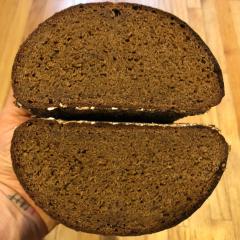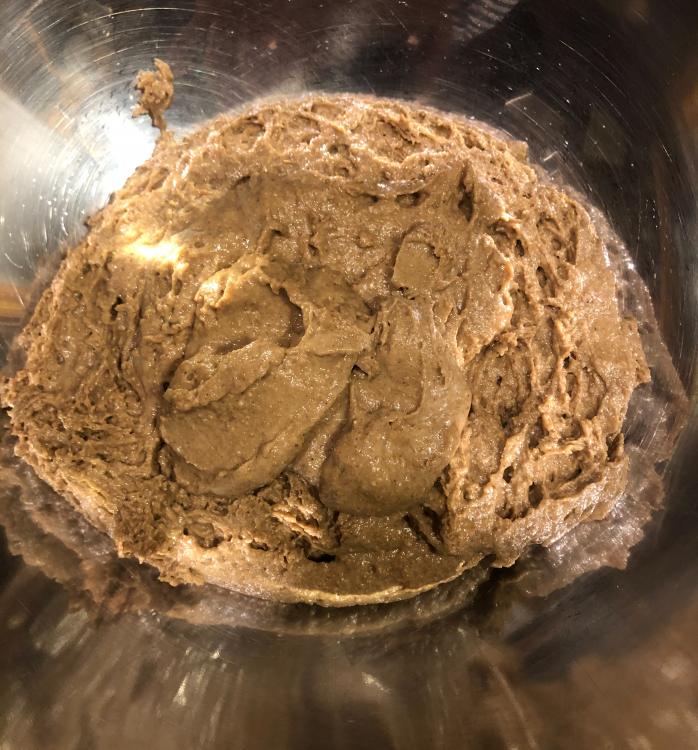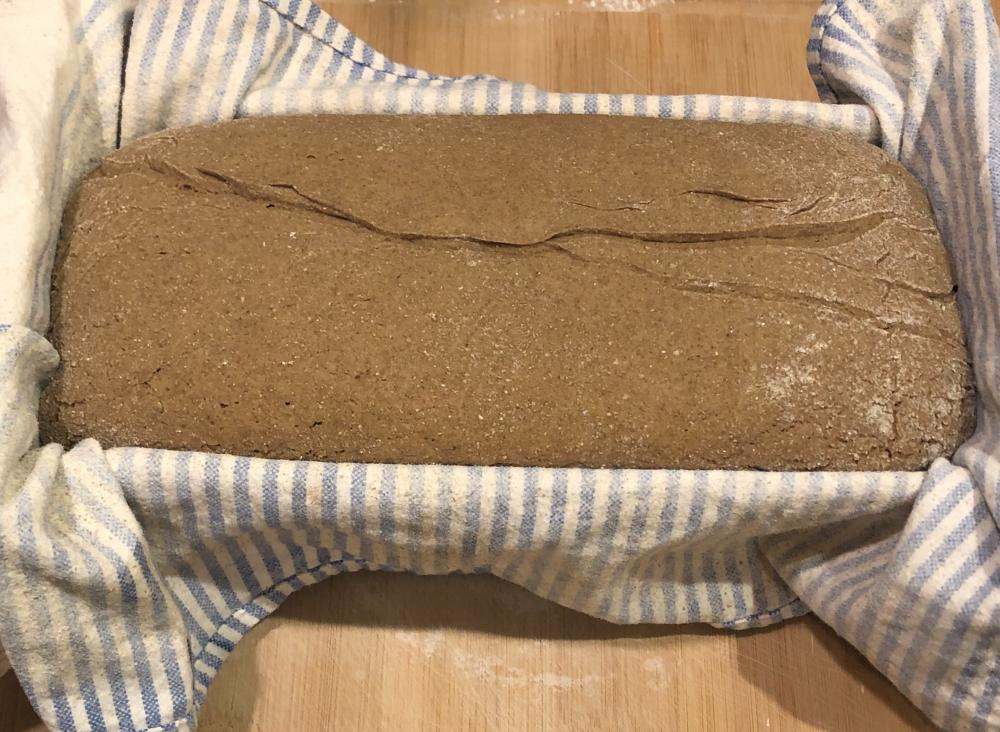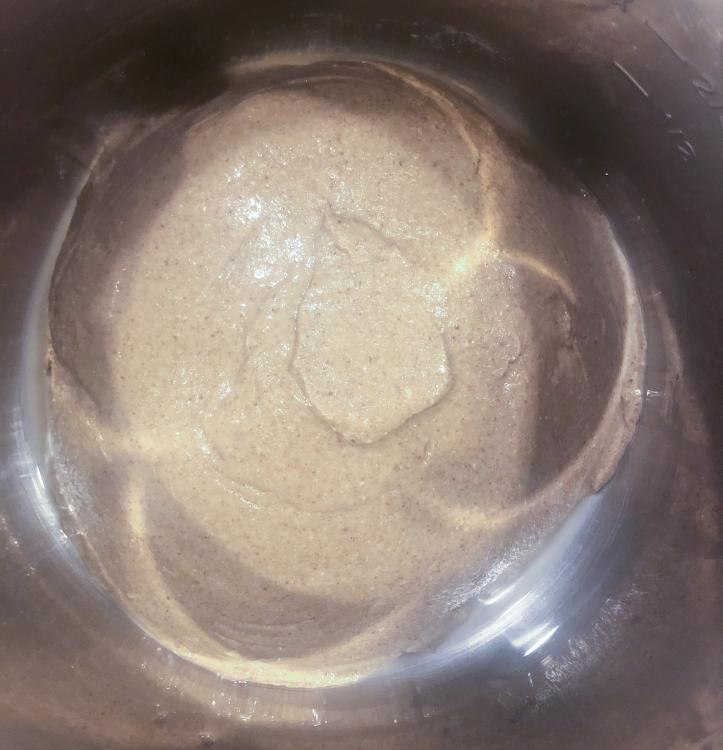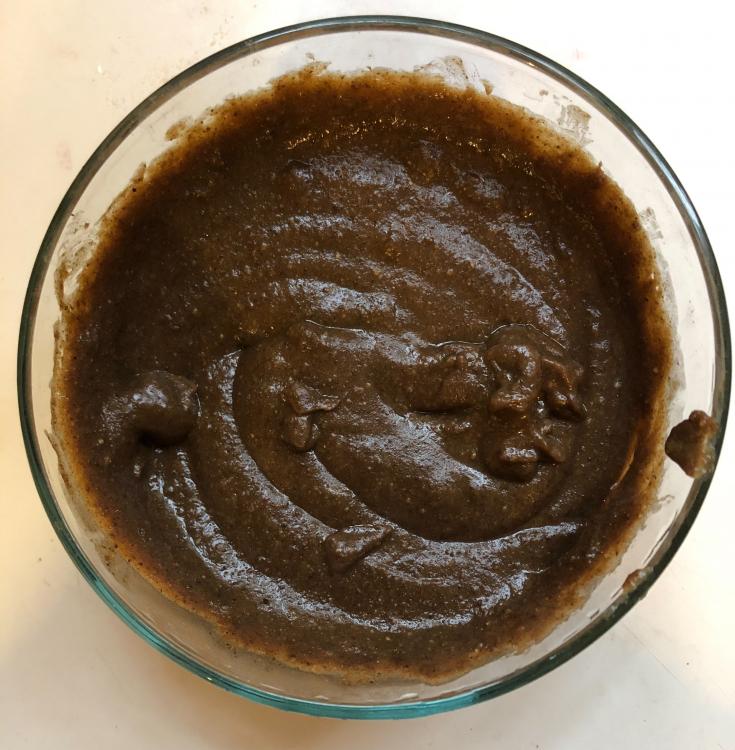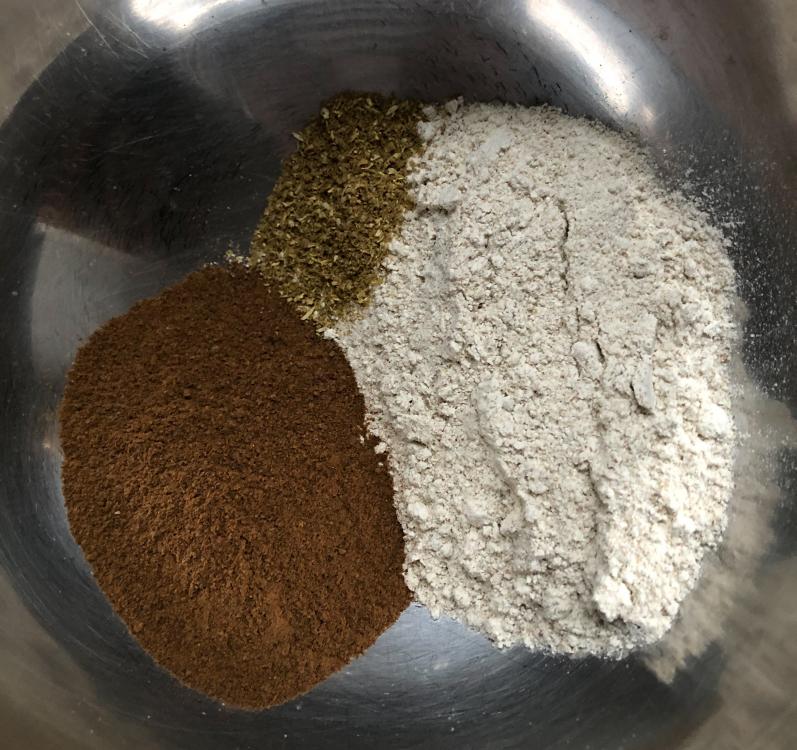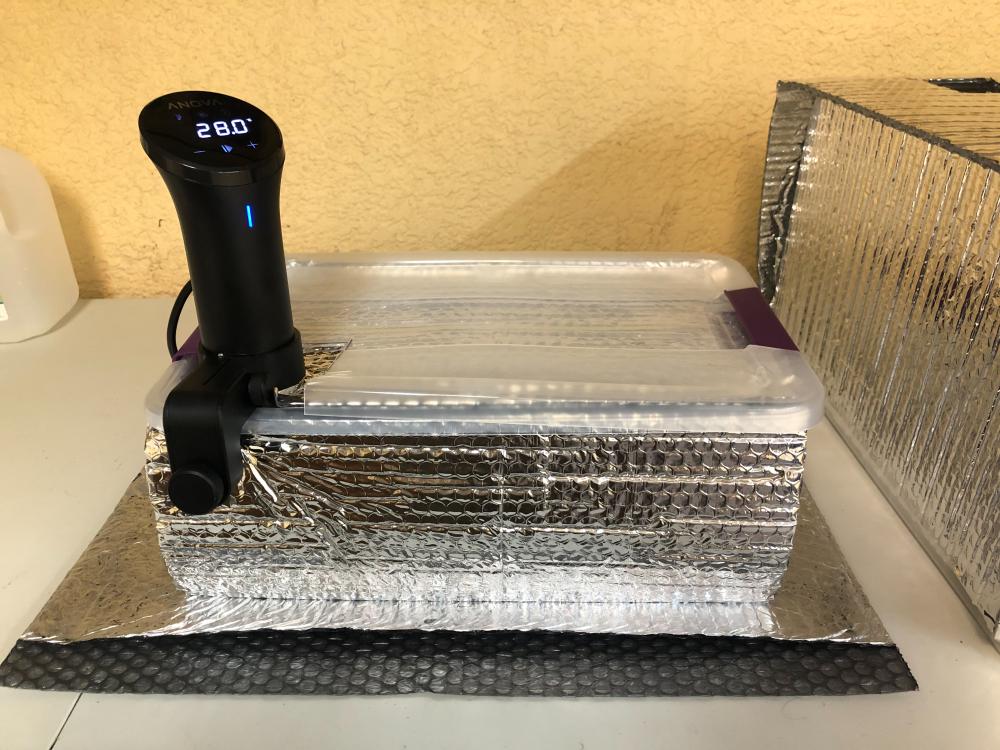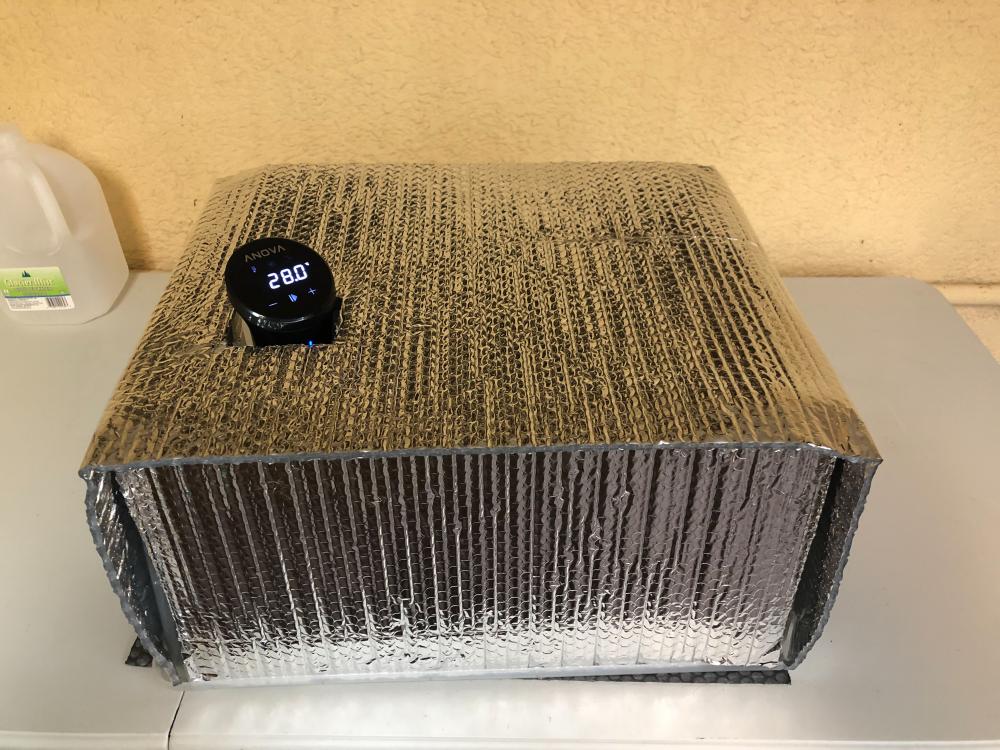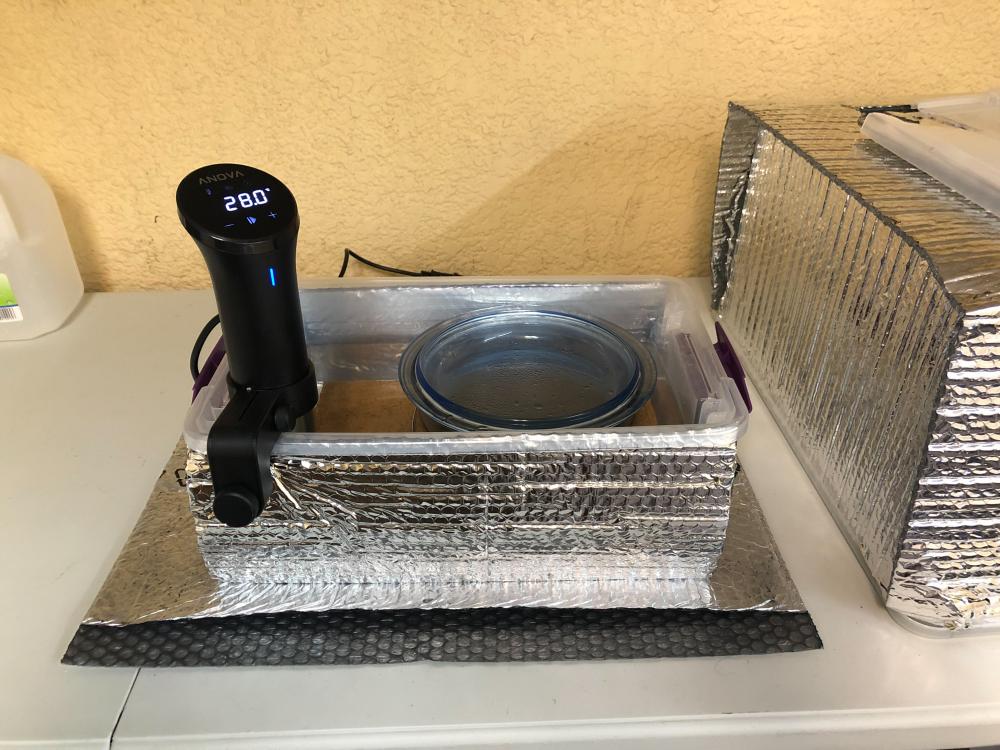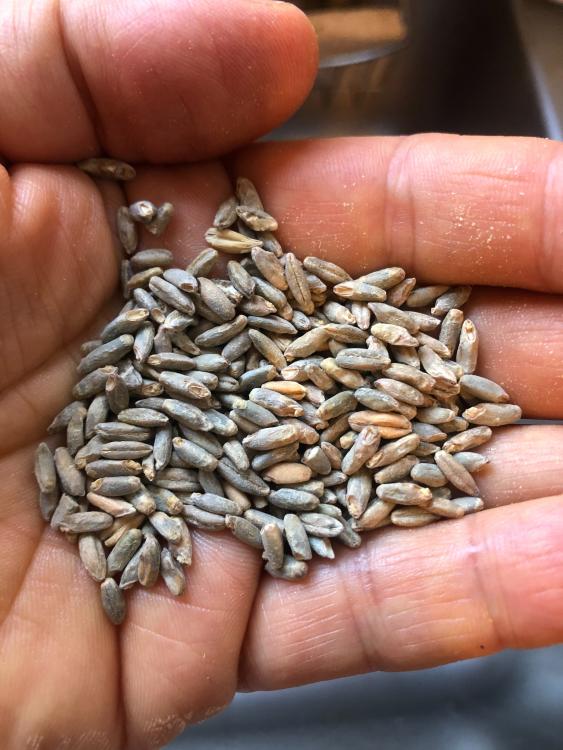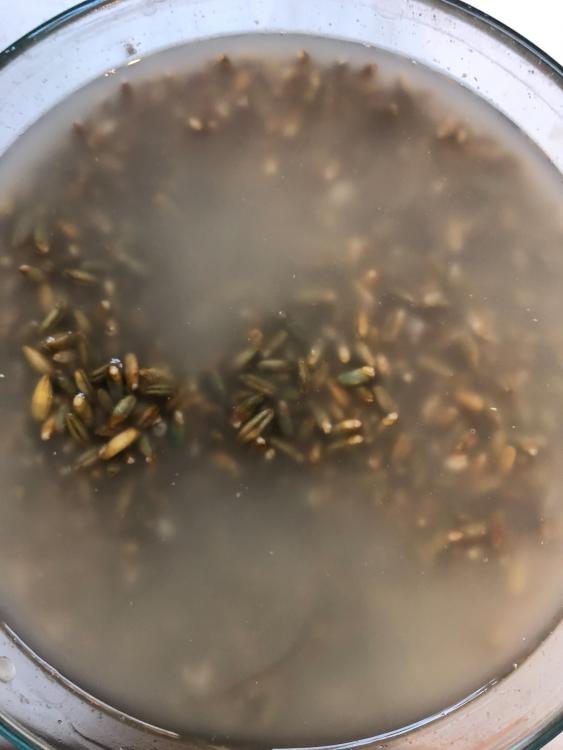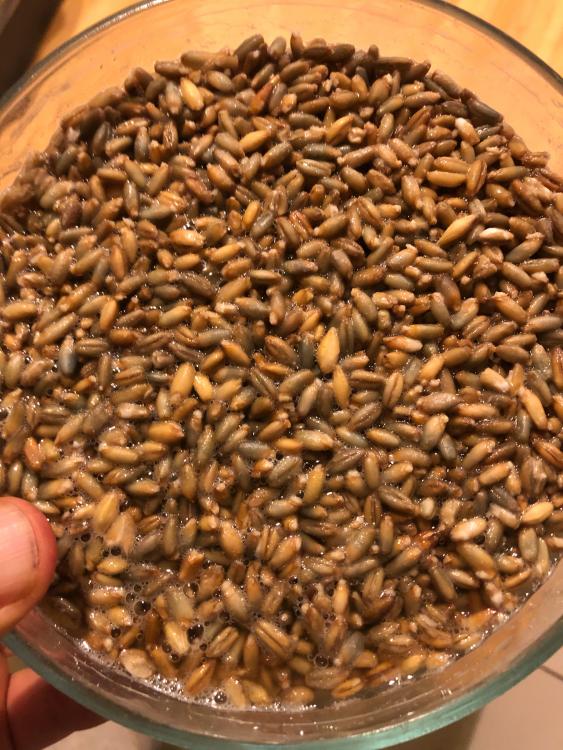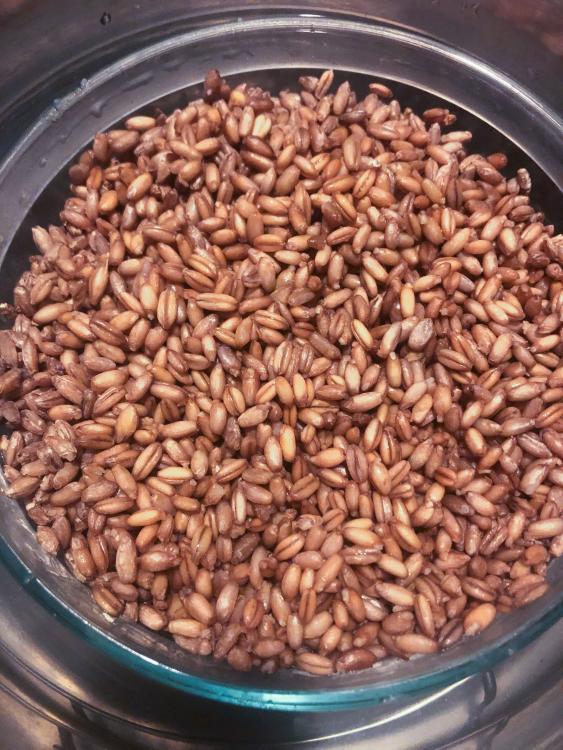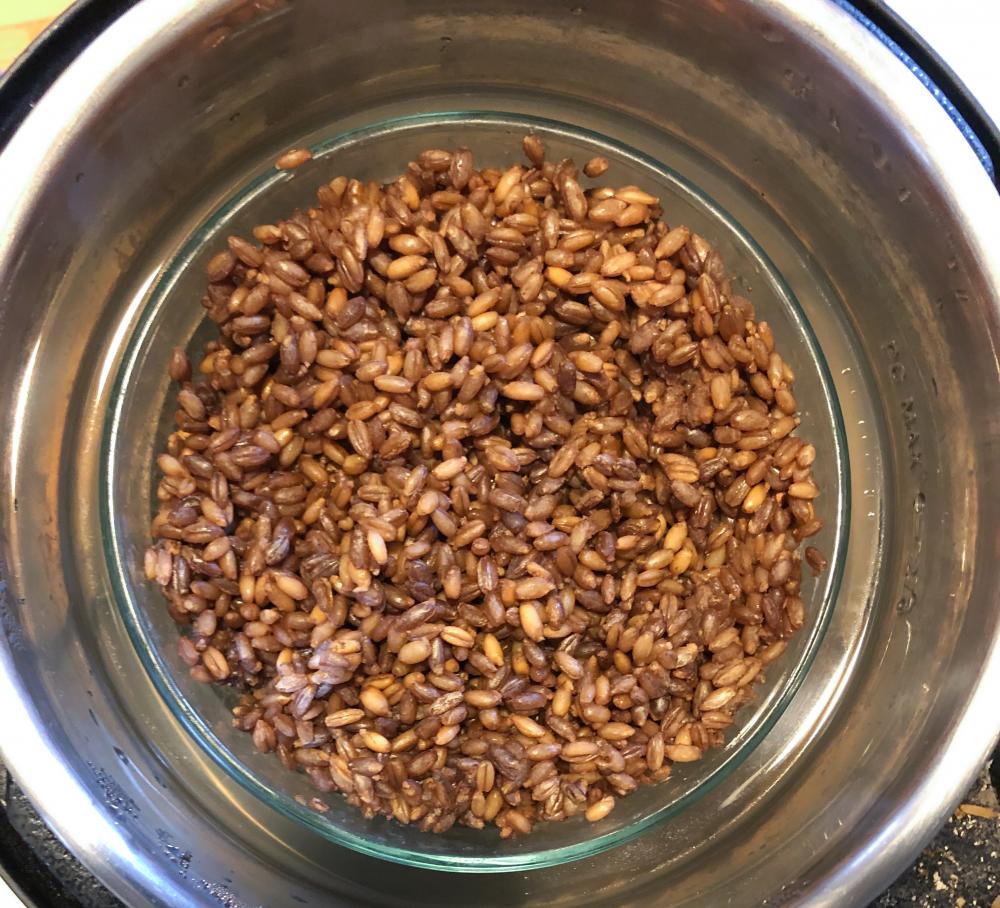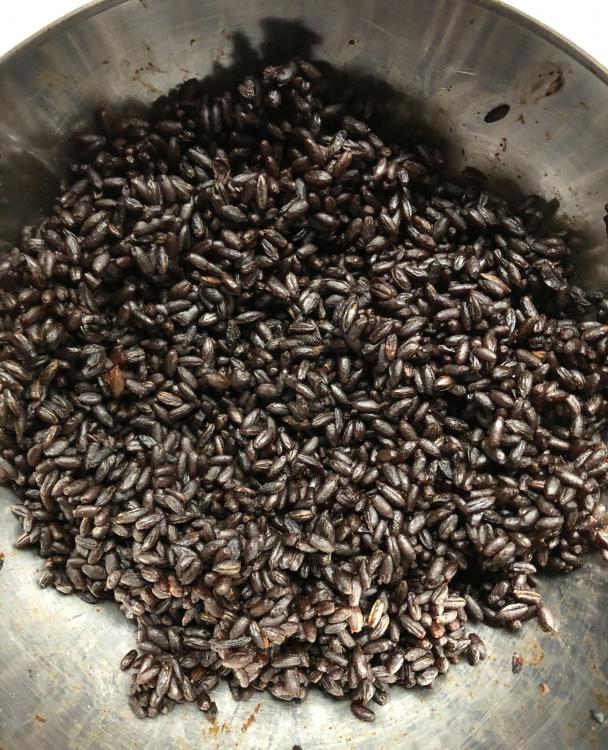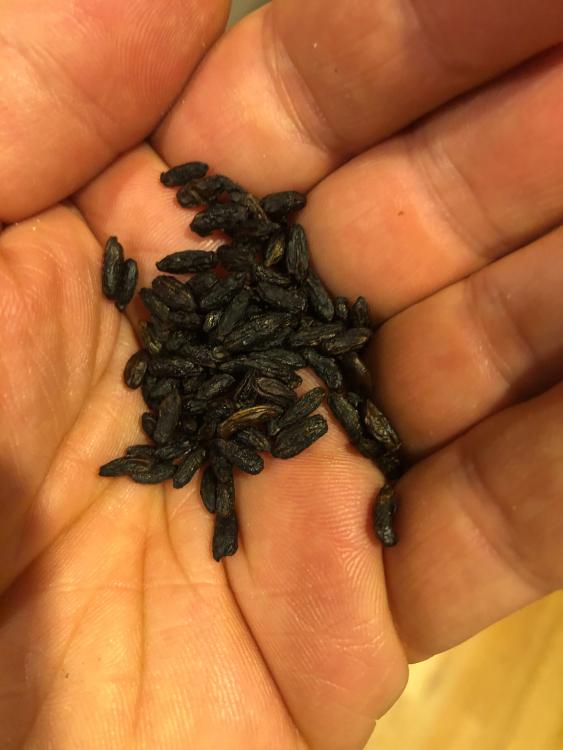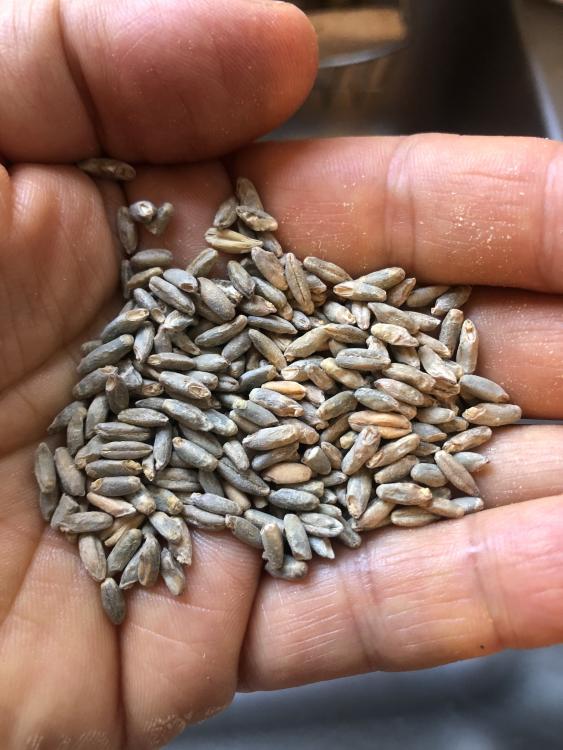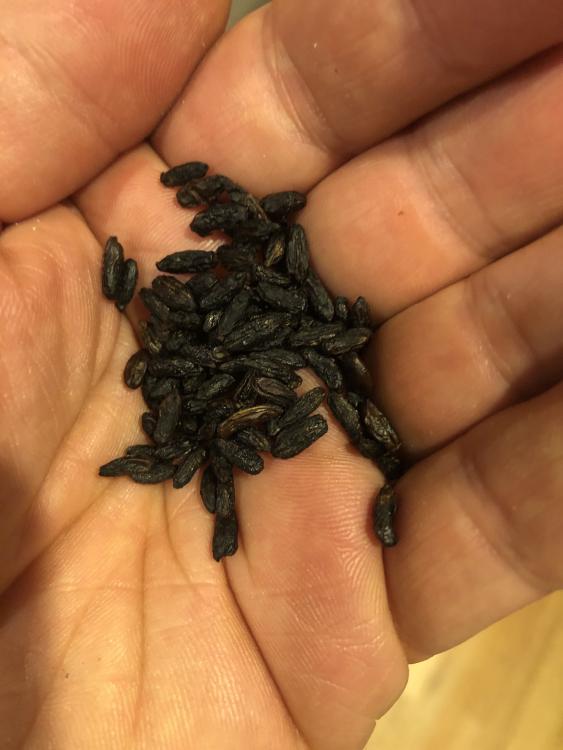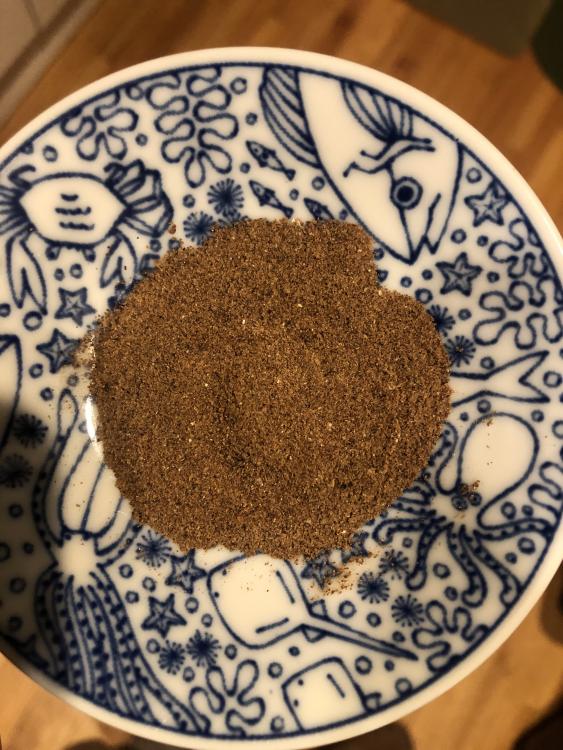-
Posts
25 -
Joined
-
Last visited
Content Type
Profiles
Forums
Store
Help Articles
Everything posted by bor
-
Putting my new fermentation rig to work, did a twist on Borodinski inspired by this rus brot's experiment. 8 hours scald with coriander, caraway and two malt ryes (fermented and not), 24 hours fermentation, and a mistake in hydration calculation leading to runny dough and cracked bread. Very deep dense flavors with pronounced spices, delicious. They say such bread should stand for 1-2 days before consumption, but who's got patience. Scald ingredients (coriander is milled with the fermented malt) Adding starter after 8 hours + cooling Scald after 24 hours of fermentation Opara (pre-dough) Dough
-
I wonder what is other's experience with using fresh vs. aged rye flour? I hear statements in favor of both.
-
Linking this fermented malt rye topic here too - a successful experiment in producing it DIY. Can be useful to non-EU rye bakers who can't get the stuff off shelf.
-
Used starter. Process from here.
-
That oven does precisely what I need! just at X4 price tag:) Next stage I guess
-
What's APO? It keeps a steady (up to 210F, within ~1F) set temperature for a set period of time, for ~$150.
-
I figured how to make my own fermented malt rye, so here's my first Borodinsky bread with it. It's a dark and dense scalded bread spiced with coriander. The fermented malt intensifies the rye flavor and darkens the color. The result is quite good for the first attempt; should work on getting deeper flavors and characteristic deep black crust. (The wiki tells several versions of the origin story; I tend to believe the last one - that it was probably invented by the Soviet food engineers.) Scald ingredients Zavarka (scald) Opara (fermented scald), before fermentation Opara after fermentation Proofed
-
Eventually I could not find a suitable off-the-shelf solution, and had to build a rig of my own. It's based on the Anova Precision Cooker, with addition of a couple of plastic boxes and thermal liner.
-
Some process documentation, from the second batch - the transformation is quite fascinating. The temperatures range from 140F in the fermentation stage to 170F in drying. Raw malt rye Beginning of fermentation 7 hours all liquid soaked up 19 hours, already beginning to brown 52 hours, getting darker 72 hours, almost black 94 hours. Charcoal black 125+ hours: ready!
-
Nice! I do wonder what the temp was. Judging by the very thin crust, prob. not higher than 200C?
-
First attempt at DIY fermented malt rye. 5 days of fermentation and slow drying at temperatures increasing from 140f to 190f, during which time the Maillard reaction transforms the grains from malt to something that looks charred, but smells caramel. Milled and scalded, it tastes like sour rye bread. Off to baking now!
-
I'm getting mine from Natural Way Mills, splitting delivery with a friend. As s rule I have to increase hydration by at least 5%, sometimes more, compared to the EU recipes. But mostly, my trouble is my ignorance:) I literally never baked before I started this less than a year ago, so had to start from learning the very basics. Unfortunately, the Rye Baker book gets some basics wrong, so that caused some troubles. Getting the right ingredients, or substitutes of right ingredients - such as for fermented malt rye or the traditional Russian sweetener ("patoka"), is another.
-
I started with the same book! But haven't had much luck with it. Most of what I have learned so far is coming from rus brot blog and youtube channel (in Russian). A throve of knowledge, the guy is truly unique. Heavy on technology, but with a specific focus on home baking. The flours are so variable. I zeroed in on a local (MN) supplier and just use their whole grain flour all the time, adapting all recipes to it.
-
I started with the same book! But haven't had much luck with it. Most of what I have learned so far is coming from rus brot blog and youtube channel (in Russian). A throve of knowledge, the guy is truly unique. Heavy on technology, but with a specific focus on home baking. The flours are so variable. I zeroed in on a local (MN) supplier and just use their whole grain flour all the time, adapting all recipes to it. Host's note: this discussion continues in the Pastry & Baking forum's topic Rye Bread: Tips, Techniques & Recipes, starting here.
-
No colorants:) The darkness comes naturally with some insane biochemistry of rye fermentation which I know little about. Eastern European breads also use great deal of malt rye of different kinds, which affect color too
-
Yep, I get other supplies from the brew stores - white malts, malt extracts, but not this one. Etsy is the most affordable source indeed, but still - the cheapest is $12/pound, if I take 5... about 10 times the price across the pond.
-
and that's in the category of "slow and expensive
-
Тhat's the unfermented malt. Fermented malt is dark red/brown.
-
Many East European rye breads are baked with fermented malt rye. It's malt rye that has been fermented and slowly dried at low temperatures, sold as flour or berries. I haven't been able to find a US-based supplier; the only two ways of procuring it here seem to be importing from the EU (slow, expensive) or making at home from unfermented malt rye (very tedious). I'm about to start experimenting with the DIY version, but before I do - wanted to ask if anyone here by any chance came across a US maker/supplier of the stuff? (that for some reason or other does not have web presence, otherwise I guess I would have found it...) Thank you! P.S. In various English-speaking forums, crystal malt or chocolate malt are suggested as substitutes - they are not
-
Yes, 100%. The dough is consistency of clay, super sticky - especially the scalded dough. There's really no kneading in the same sense as in wheat, just mixing. Mostly with hands with wet latex gloves on
-
That's a thought - thanks! Off I go
-
Having 15+ programs, each with its own preset ranges that can't be overridden? I'd love just to have two knobs, for time and temp...
-
Thanks! Yes I know this one - but, forgot to mention, I need the heating on both sides...
-
Hello - I'm experimenting with rye sourdough fermentation processes, which need, depending on the task, maintaining stable temperatures between ~80-200F, for 1-24 hours. I'm currently using my InstaPot for that, and reaching its limits. So, I'm looking for a simple small countertop oven that will let me do what I need - which for some reason appears to be a challenging task... Most won't let me go as low as 80, and those that do are overly sophisticated and expensive (and are limiting in other ways, such as having a maximum time on, and so on). I'll appreciate any recommendations, hacks, thoughts? Thank you:)
-
Greetings! Just introducing myself here. I bake rye bread, with a special liking of Lithuanian scalded breads. Looking forward to learning here


